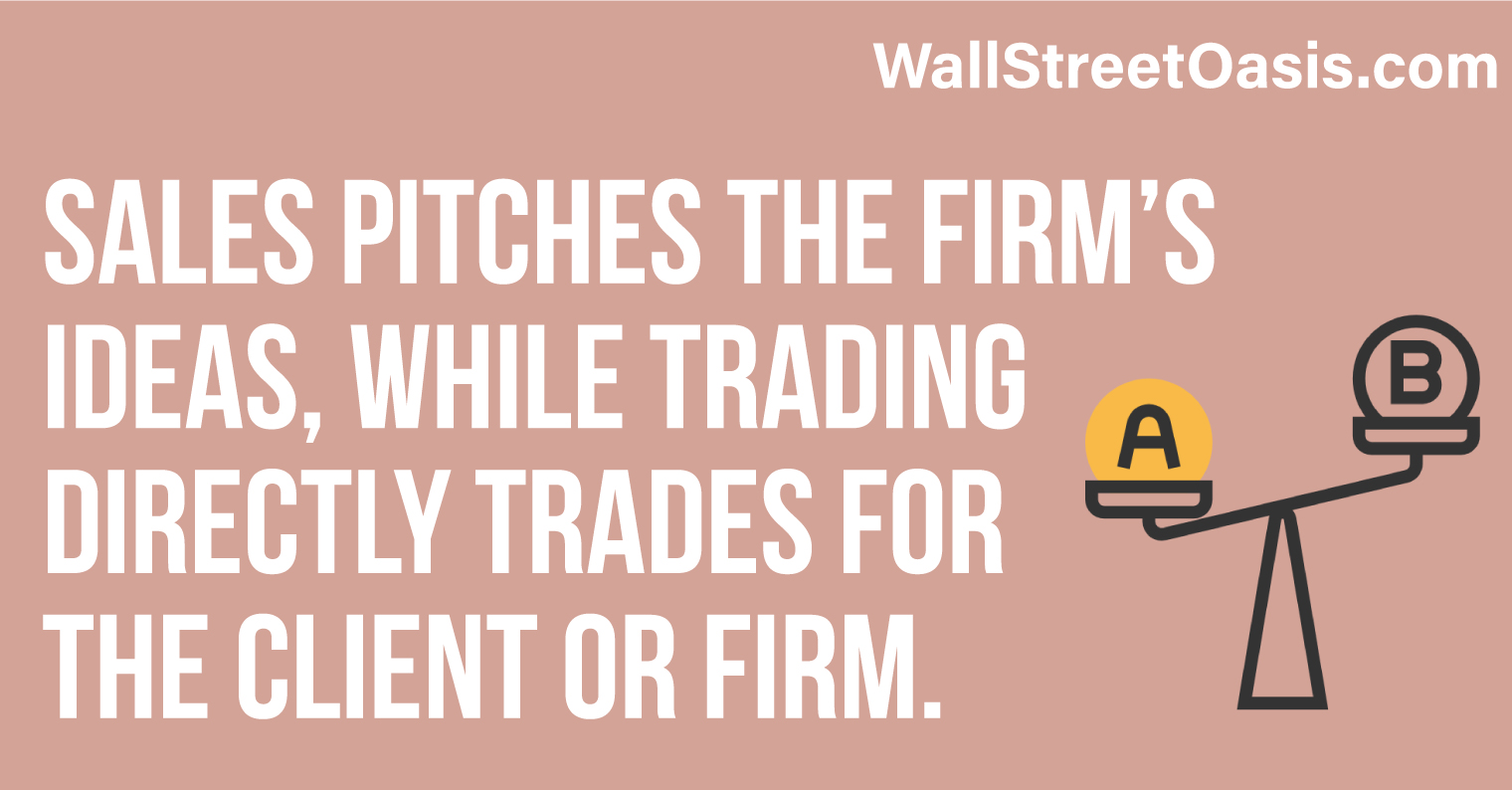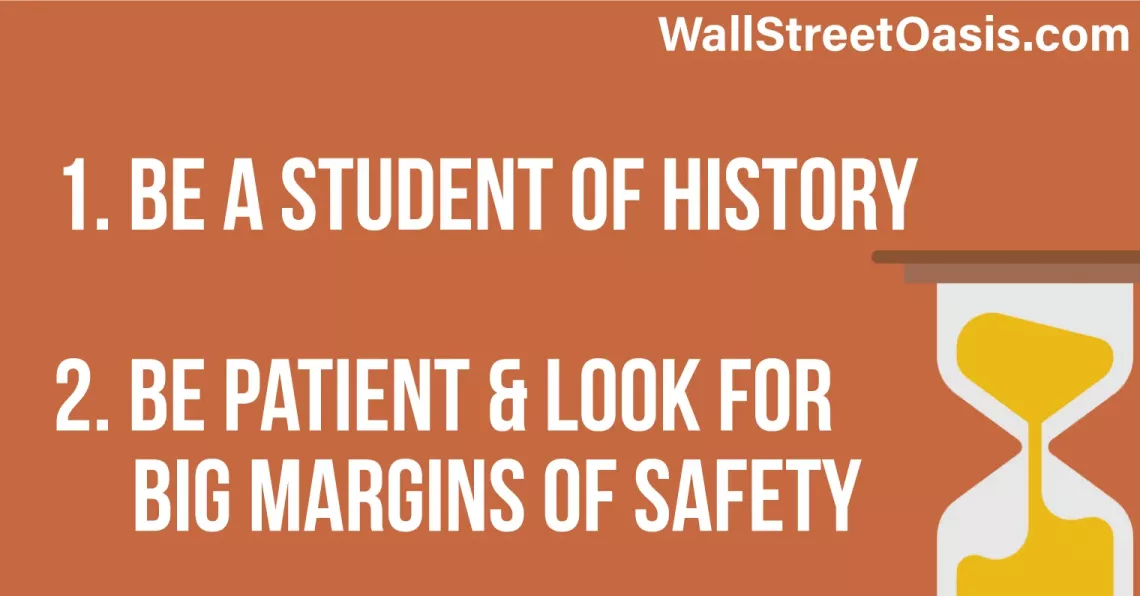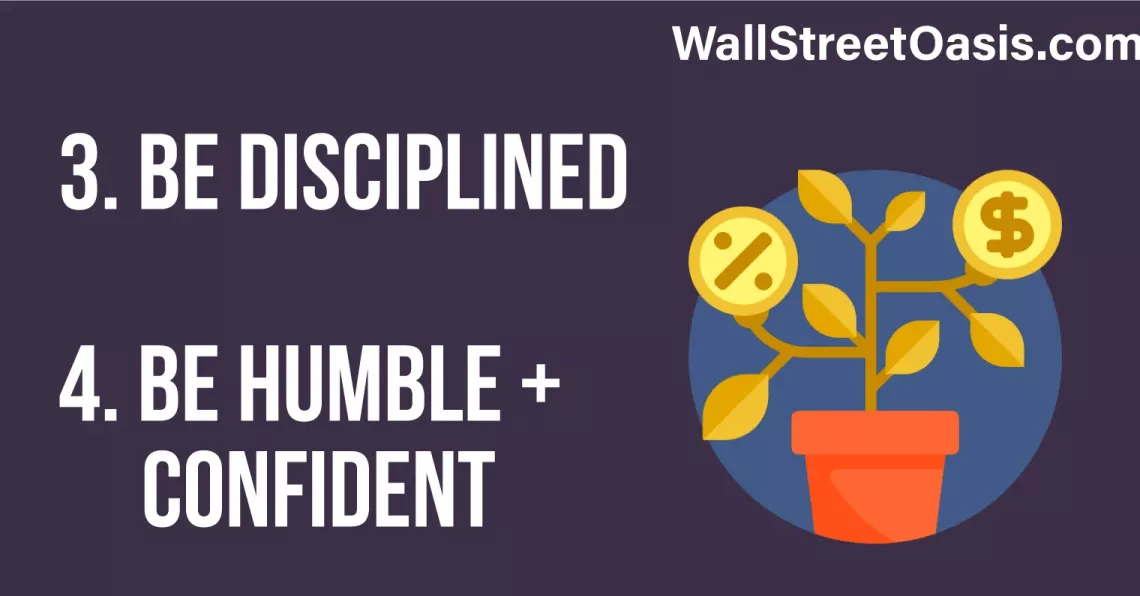Fixed Income Sales and Trading 101
Fixed Income (FI) - What Is It?
Fixed income is a type of trading that falls under the sales and trading umbrella.
Traditionally, fixed income trading meant trading investments that had a fixed income. This means that the borrower paid a fixed amount of money on a fixed schedule.
Over time, fixed income branched off to include a bunch of different products that aren’t quite as straightforward as the traditional products (bonds and loans, notably). Fixed income involves the trading of these more traditional products, as well as newer products.
Fixed Income Sales vs Fixed Income Trading
The difference between FI sales and FI trading is quite simple and uniform across S&T. What separates the different types of desks is moreso the type of trading that they do. To quote the WSO guide on S&T, here’s the difference between sales and trading summarized:

- Sales: pitch the firm's ideas to clients to sell securities, and build relationships with clients.
- Trading: trading securities, typically in two ways (there are others means of trading, see "Different Kinds of Trading" for more on that), trading for the client or trading with the firm's capital (called agency trading and prop trading, respectively).
Fixed Income Hours and Compensation
Fixed income hours and compensation are roughly on par with S&T, so if you know those general figures, this section should look familiar.
Hours
During the week, FI S&T workers put in around 50-60 hours. There’s typically no weekend work, which is always a huge positive. Generally speaking, the lifestyle in FI and S&T as a whole is very doable
Compensation
Compensation in FI, in both sales and trading, averages out around $120k out of undergrad. Salary grows significantly as you climb the ladder, reaching $700k-1m at the managing director level. By the time you’re a VP in S&T, you make more from your bonus than your base salary. As always in S&T, performance plays a massive role in determining your all-in compensation, especially at the higher levels.
What Makes a Great Fixed Income Trader?
Prior to 2008, the best traders were the hardest swinging, the ones who took on the most risk. That trader is a dying breed, as banks are cutting back on risk and regulations are limiting the number of desks. @TheKing"
conducted an interview with a fixed income trader at a major bank, who gave four traits that make great traders post-2008.
Fixed Income Interview
FI interviews can be a little tricky depending on how technical they get. For entry level roles, banks shouldn’t get too technical beyond the surface-level. Here are example questions to understand going in (@MonkeyBusiness"):
- Be a student of history: The best traders today have a keen understanding of market patterns, a result of being a student of the market’s history. It’s amazing how few traders keep a data history, despite its incredible value.

For college students, the best way to do this is to read, read, and read some more. Any resource you get your hands on that sheds light on the history of the market will be tremendously helpful in your endeavors as a trader. Utilize your school resources to build a history of data, as such information can be incredibly empowering; something like historical oil prices, SPX prices, treasury bond yields, are all very much available, and are great ways to analyze trends in each asset class and relative value between them.
- Be patient - look for big margins of safety: Seth Klarman and Ben Graham both wrote about the margin of safety in analyzing value stocks, but the philosophy is connected to trading as well.
Sometimes a trade you put on today looks great today, even better tomorrow, and magical 2 weeks from now. In the meantime, you will get stopped out. With risk-taking much more regulated, the best traders are going to be ones who do the most with the limited balance sheet available. Be patient with a trade, and never chase it.
- Be disciplined: Good traders define their entry points, stopping points, etc. Great traders adhere to them. After hours and hours of research on a trade, it’s easy to fall in love with an idea. When that idea goes haywire, it’s hard to let go, and that’s why only the best traders have the discipline to get out.
- Be humble and confident:
 Confidence is a driver of success in trading, but arrogance is equally a driver of failure. Any one trader who thinks they can take down the whole market is fooling themselves and setting themselves up for disaster (see: London Whale). Learn humility, learn when to wait, and test your ideas religiously. When you’ve done that and your idea stands, then you have something, and it’s time to be confident - don’t be afraid to dedicate risk to it accordingly.What is duration? How is it calculated?
Confidence is a driver of success in trading, but arrogance is equally a driver of failure. Any one trader who thinks they can take down the whole market is fooling themselves and setting themselves up for disaster (see: London Whale). Learn humility, learn when to wait, and test your ideas religiously. When you’ve done that and your idea stands, then you have something, and it’s time to be confident - don’t be afraid to dedicate risk to it accordingly.What is duration? How is it calculated?
- Term structures? Yield curves, their shapes, and how do you make money on the various ones?
- What's the present yield curve look like here (Canada) and there (USA)?
- Tell me some of the different bonds you know about... what about their prices with respect to each other? (Plain vanilla/convertible/callable.)
- If interest rates go up/down... what would you do with a bond that is presently variable in coupon rate that has a convert option to a fixed coupon bond?
- Show me how to do a DCF.




First, it really depends on the specific type of desk. For example, equities can be divided into Cash Equities and Equity Derivatives. On the other hand, fixed income can be divided into Gov't Credit, Corporate Credit, Rates, Currencies and Money markets. I may be missing a few but those are just the main ones off the top of my head. For the sake of clarity, I'm referring to bonds when I say credit.
If you're a big picture type of person, then you may be more biased towards Rates and Foreign Exchange. If you're more into the nitty gritty details of specific companies, you may be leaning towards Cash Equities or Corporate Credit.
The biggest differentiator within asset classes, in my opinion, is the client type your sales desk covers. Most banks divide their sales teams into two separate groups (i.e. Institutional Sales & Corporate Sales). Institutions mostly take the form of pension funds, mutual funds and hedge funds. Corporates are just Main Street companies looking to hedge their market exposure.
If you want something more fast-paced and challenging, then I'd go institutional.
Hopefully this serves as a good starting point for your question.
If you go into Institutional Equity Sales, can you do both cash equities and equity derivatives as well? I personally really like both.
A lot of banks I know divide Cash Equity Sales/Sales Trading and Equity Derivatives into two groups.
So if a client wishes to buy 10000 shares of stock and then get 100 puts to protect the position, he'd have to deal with two different salespeople. One for the stock and one for the puts.
So if a client wishes to buy 10000 shares of stock and then get 100 puts to protect the position, he'd have to deal with two different salespeople. One for the stock and one for the puts.
No. One salesperson.
Go with the most illiquid. In my opinion you'll have a longer career ahead of you and there's greater scope for value add.
How does equity derivs sale look into terms of future prospects in the US? (considering maybe clearing all options of an exchange?)
Well you cant put exotic products on an exchange...you'll always need a person
Do cash equity salesmen rely solely on their ER analyst's advice or do they take the reports home and really dig into the companies and input their own advice into the mix when dealing with their institutional clients?
Do cash equity salesmen rely solely on their ER analyst's advice or do they take the reports home and really dig into the companies and input their own advice into the mix when dealing with their institutional clients?
They need to be aware of what's going on but sales men usually don't have the same amount of detailed knowledge as the guys in research. Sales people need to be able to give their clients market colour but ultimately it is about recognizing which stocks fit the client's portfolio and strategy in order to close the deal. Own insights can be thrown into the mix but these should never go against the bank's official publications
lol this thread amuses me. The blind leading the blind.
OK. what's your advice?
Adipisci eos similique eos. Consectetur tempora eligendi et soluta sed dolore. Commodi recusandae in consectetur et ab est. Tempora fugit voluptas itaque voluptate atque et voluptatem.
Qui facere sint quod animi et dignissimos illum nisi. Tenetur dolorem quia ratione officia saepe odio et.
See All Comments - 100% Free
WSO depends on everyone being able to pitch in when they know something. Unlock with your email and get bonus: 6 financial modeling lessons free ($199 value)
or Unlock with your social account...